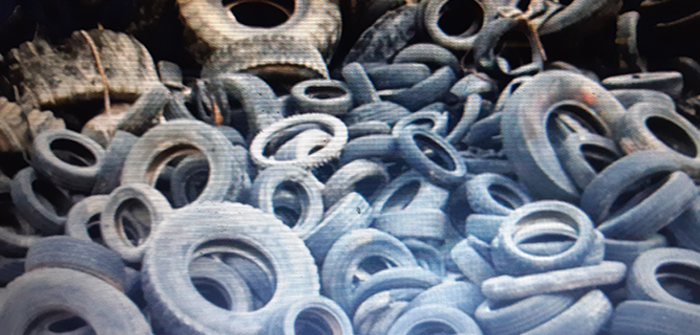Australian tire recycler Green Distillation Technologies, which has developed a new technology that turns waste tires into oil, carbon and steel, has signed an agreement worth up to AU$50m to establish up to five tire recycling plants in South Africa.
Volco Power will be in charge of the construction. The company plans to build the plants in five of South Africa’s nine provinces depending on the volume of tires available.
Although Volco is comparatively new, its predecessor Synchrona, which had the same directors as Volco, specialized in the conversion of municipal solid waste and used tires into electricity and other forms of energy in over 15 countries across Africa. However, due to the problems of obtaining power purchase agreements with government, Volco has now decided to concentrate on providing energy to private industrial clients.
Wilson Machekanyanga, business development manager at Volco, said that despite the company’s change in focus, it had still retained its interest in the waste recycling sector and this led to the deal with Green Distillation Technologies and its technology to convert of end-of-life tires into oil, carbon and steel.
“South Africa is a good market for tire recycling as it generates more waste tires than all the other Southern African countries put together, with more than 300,000 metric ton a year. Of this less than 20% is recycled, with 60 million tires kept at illegal storage sites, where they pose a fire hazard and a breeding ground for mosquitos,” Machekanyanga commented.
Trevor Bayley, chief operating officer of Green Distillation Technologies, said that the company was pleased to have reached this agreement to take its technology to another country.
“We have had enquiries from most of the major countries throughout the world, but this is the first memorandum of understanding we have signed. Clearly our technology can make a significant environmental contribution to South Africa as our process is not only emission-free but can also convert waste product into high-value oil, carbon and steel.
“All the competing approaches to recycling old tires either create dangerous emissions or the products produced by the process are of low value. Crumbing or chipping tires doesn’t recycle but simply reduces the tire into small pieces that will still last 500 years. When it is burnt as furnace fuel dangerous emissions are produced and a there is residue ash that has to go to landfill.”
The plants will comprise six tire processing modules and will convert approximately 700,000 old tires per year into eight million liters of oil, 7,700 metric tons of carbon black and 2,000 metric tons of steel.
“We operate one plant at Warren in Western, New South Wales. Although it may seem like an out of the way place, it is strategically well located as it is on the Oxley Highway, North West of Dubbo, which is the main truck transport route between Melbourne and Brisbane. It is also located on a rail link with trains transporting cotton, wheat and wool to the major cities and a backload of old tires is welcome revenue.
“The plant occupies approximately 4ha of the 21ha site, leaving space for expansion and other projects, synergistic industries and tire storage within the limits imposed by NSW Environment Protection Authority.
“We have also secured all the necessary government approvals for a plant in Toowoomba, Queensland, and are in the capital raising stage prior to commencing construction. We have had enquiries about building plants in every state of Australia,” Bayley concluded.



